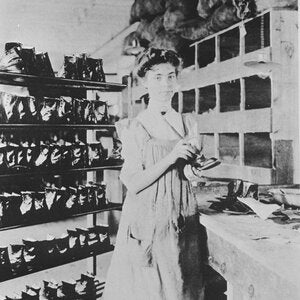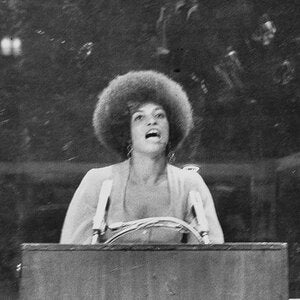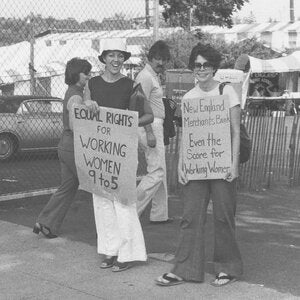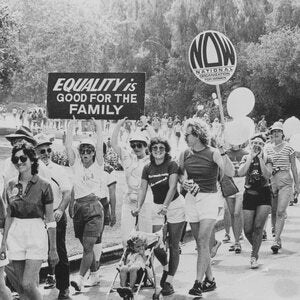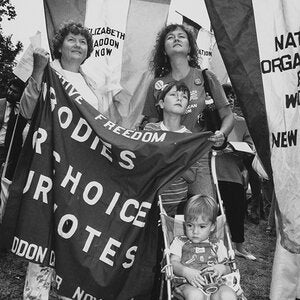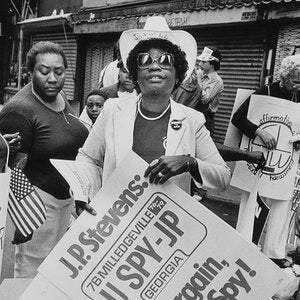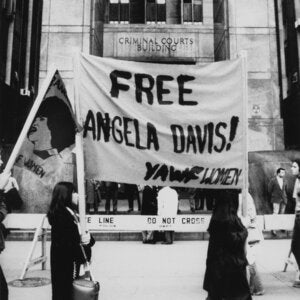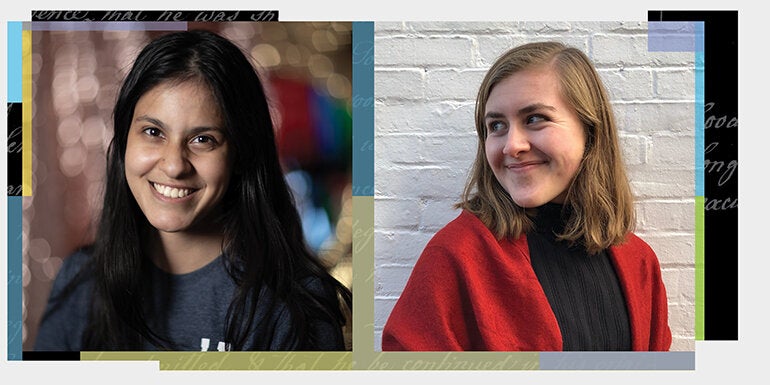Across the country, young people are joining—and often leading—a chorus of calls for social change. A new mentoring and leadership development program at the Radcliffe Institute for Advanced Study is empowering Harvard undergraduates and local high school students to learn from women activists throughout history—and each other—as they seek to drive meaningful change in their communities.
“The Emerging Leaders Program is an outgrowth of Radcliffe’s history of educating and supporting generations of women scholars and civic leaders, and it aims to meet a pressing need in our current moment,” says Tomiko Brown-Nagin, dean of the Radcliffe Institute, Daniel P.S. Paul Professor of Constitutional Law at Harvard Law School, and professor of history in the Faculty of Arts and Sciences. “We have a responsibility to ensure that students here at Harvard and beyond our campus have opportunities for mentorship—which is critical to meaningful inclusion in education—and to build the knowledge and skills for effective civic and community engagement.”
Launching in spring 2021, Emerging Leaders brings together Harvard undergraduates and students from local high schools to explore the history, theory, and practice of civic engagement and social movements. Starting with a cohort of 17 undergraduates and up to 30 high school students, Emerging Leaders teams will delve into the resources of Radcliffe’s Schlesinger Library on the History of Women in America—which houses the archives of prominent civil rights activists such as Angela Davis and Pauli Murray, along with the records of the National Organization for Women (NOW)—and conduct research for capstone projects that identify and address urgent needs in the community.
The goal of the program is to encourage young people to see themselves as leaders, and to build the skills and confidence to inspire others and pursue meaningful change. By building new relationships across Harvard and the local community, the Radcliffe Institute is setting a new standard for what an interdisciplinary institute for advanced study can achieve in the world. The Institute’s strategy, Radcliffe Engaged, is expanding opportunities for students, faculty, and Radcliffe fellows to pursue groundbreaking work that transcends disciplinary and professional boundaries in order to reckon with complex social issues, such as racial injustice, health equity, climate change, education access, and the preservation of democratic institutions.
“We have a responsibility to ensure that students at Harvard and far beyond our campus have opportunities for mentorship—which is critical to meaningful inclusion in education—and to build the knowledge and skills for effective civic and community engagement.”
Donors—including Ashley Garrett MBA ’87 and Alan K. Jones AB ’83, MBA ’87 and Heather McEvoy Keane AB ’85 and Robert Sprague Keane AB ’85—provided crucial seed funding to turn the vision for the Emerging Leaders program into reality. “We are very excited about the launch of Emerging Leaders and thrilled to partner with Radcliffe in support of these high school and college students,” says Garrett. “We look forward to seeing what these young leaders are able to accomplish together.”
Current Harvard College students Shivani Aggarwal ’21 and Lauren Fadiman ’21 were inspired to take on the role of lead mentors and help shape the initiative from the beginning. “I loved the idea that Radcliffe—with its mission and legacy, and the resources collected in the Schlesinger Library—was experimenting with new programs and trying to rethink how it can bridge different communities,” says Aggarwal.
This was an opportunity for Aggarwal and Fadiman to hone their own leadership skills—not only by serving as advisors to younger students, but also by training their classmates to step into mentor roles themselves. “We’re trying to create a mentorship model that provides a lot of space for the high schoolers to forge their own experience, with mentors serving as facilitators and addressing needs as they come up,” explains Fadiman.
When the COVID-19 pandemic made it impossible to connect in person, Emerging Leaders moved forward online as its mission became even more important. “We have to work together and learn about each other because this work is so urgent,” says Aggarwal, who was planning the digital activism component of the course with Fadiman weeks before the killing of George Floyd led to nationwide protests. “That was a moment to take a pause and think, yet again, about how leadership and activism are needed now more than ever.”

